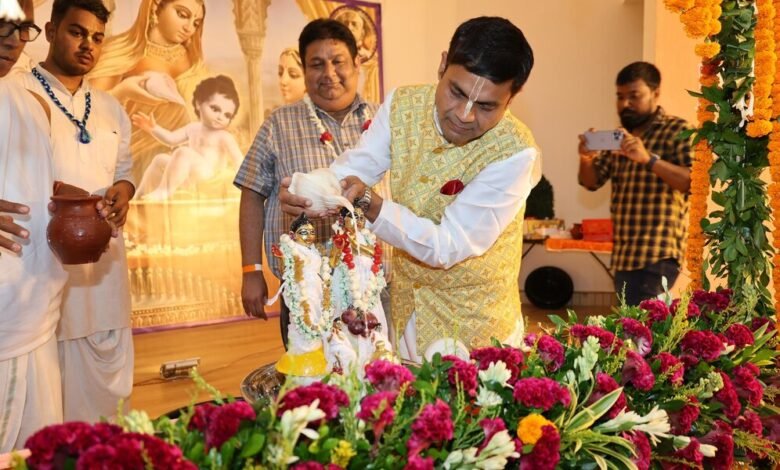Kalyan Day – Celebrating the Eternal Bond of Marriage in Hindu Tradition

In the rich tapestry of Hindu customs, Kalyan Day (also known as Kalyanam or Vivaha Muhurta) holds profound significance as an auspicious day for marital unions. Rooted in ancient Vedic traditions, this sacred occasion symbolizes the divine union of two souls, blessed by the gods and sanctified by sacred rituals. More than just a wedding ceremony, Kalyan Day represents the cosmic harmony between partners, families, and spiritual energies, creating a bond that transcends lifetimes. From elaborate temple rituals to grand cultural celebrations, this day is marked by vibrant traditions, devotional songs, and timeless customs that have been passed down through generations. Whether you’re preparing for your own Kalyan Day or simply seeking to understand its deep cultural importance, this guide explores the rituals, significance, and modern adaptations of this sacred matrimonial celebration.
Headings and Their Explanations
The Spiritual Significance of Kalyan Day
Kalyan Day is not merely a social event but a deeply spiritual journey that aligns with celestial energies to ensure marital bliss and prosperity. According to Hindu scriptures, the word “Kalyan” means welfare and auspiciousness, making it the perfect time to begin a lifelong partnership. Astrologically, the day is chosen based on the Muhurta (auspicious timing) calculated by priests to harmonize the couple’s birth charts (Kundali Milan). The presence of favorable planetary positions, particularly the alignment of Jupiter (Guru) and Venus (Shukra), is believed to bless the union with love, stability, and divine grace. Temples often conduct special Kalyanotsavam ceremonies, where deities like Lord Vishnu and Goddess Lakshmi or Lord Shiva and Parvati are symbolically married, reinforcing the sacredness of marital vows.
Traditional Rituals and Ceremonies of Kalyan Day
A Kalyan Day wedding is a grand spectacle of rituals, each carrying deep symbolic meaning. The ceremony typically begins with Ganesh Puja to remove obstacles, followed by Kanyadaan, where the bride’s parents entrust her to the groom in a heartfelt gesture of love and duty. The Saptapadi (seven steps around the sacred fire) is the most pivotal ritual, representing seven lifelong promises the couple makes to each other. Other key customs include Mangalsutra Dharanam (tying the sacred thread), Sindoor Daan (applying vermilion), and Aashirvachan (blessings from elders). In South India, the Oonjal (swing) ceremony signifies the couple’s ability to face life’s ups and downs together, while North Indian weddings often feature the lively Jaimala (garland exchange) and Mangal Pheras. Each ritual is accompanied by Vedic chants, devotional songs, and the rhythmic beats of traditional instruments like the nadaswaram and mridangam.
Regional Variations in Kalyan Day Celebrations
While the essence of Kalyan Day remains the same across India, regional customs add unique flavors to the celebrations. In Tamil Nadu, the Tirukalyanam festival in temples like Meenakshi Amman Temple reenacts the divine wedding of deities with grand processions and floral decorations. Maharashtrian weddings feature the Antarpat ceremony, where a curtain separates the couple until the auspicious moment of union. Bengali weddings emphasize the Saath Phere and Shubho Drishti (first glance ritual), while Punjabi Kalyan ceremonies are marked by energetic bhangra dances and a lavish doli (farewell). Kerala’s Nischayam (engagement) and Thalikettu (tying the thaali) reflect the simplicity and elegance of Malayali traditions. Despite these differences, the underlying theme of unity, prosperity, and divine blessings remains universal.
Modern Adaptations and Trends in Kalyan Day Weddings
While tradition forms the backbone of Kalyan Day, contemporary couples are blending ancient customs with modern touches to create personalized experiences. Eco-friendly weddings with biodegradable decor and organic mandaps are gaining popularity, along with intimate destination Kalyan ceremonies in heritage palaces or beachside venues. Digital innovations like live-streamed rituals for global guests and AI-powered wedding planners are making ceremonies more accessible. Fusion elements, such as combining a Sangeet night with a Western-style cocktail party or designing lehenga-sarees with minimalist aesthetics, reflect evolving tastes. Yet, even in modern weddings, the essence of Kalyan Day—sacred vows, familial bonds, and cultural pride—remains untouched, proving that tradition and modernity can coexist beautifully.
The Cultural and Social Impact of Kalyan Day
Beyond the couple, Kalyan Day strengthens familial and community ties, serving as a reaffirmation of shared values and collective joy. It is a time when generations come together—elders pass down wisdom, younger members reconnect with roots, and communities celebrate unity. Economically, the wedding industry thrives during Kalyan seasons, supporting artisans, priests, caterers, and musicians. Socially, progressive adaptations like same-god Kalyanams (LGBTQ+ weddings) and interfaith ceremonies are expanding the inclusivity of this ancient tradition. Philosophically, Kalyan Day mirrors the Hindu belief in Dharma (duty), Artha (prosperity), Kama (love), and Moksha (liberation), making marriage not just a personal milestone but a spiritual journey.
Conclusion
Kalyan Day is a luminous thread in the fabric of Hindu culture, weaving together love, spirituality, and tradition into a celebration that resonates across ages. Whether observed with grand temple rituals or intimate family gatherings, its core message—of unity, devotion, and auspicious beginnings—remains timeless. As society evolves, so do the expressions of this sacred day, yet its soul endures, reminding us that marriage is not just a union of two individuals but a harmonious blend of hearts, families, and divine blessings. For those embarking on this journey, Kalyan Day offers not just a ceremony but a sacred passage into a lifetime of shared dreams and enduring love.
